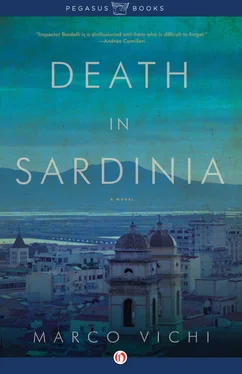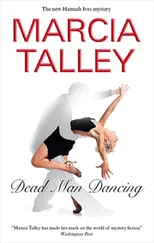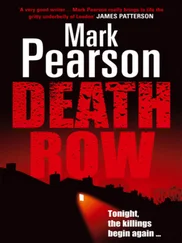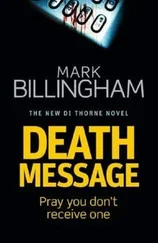Marco Vichi - Death in Sardinia
Здесь есть возможность читать онлайн «Marco Vichi - Death in Sardinia» весь текст электронной книги совершенно бесплатно (целиком полную версию без сокращений). В некоторых случаях можно слушать аудио, скачать через торрент в формате fb2 и присутствует краткое содержание. Год выпуска: 2014, ISBN: 2014, Издательство: Pegasus Books, Жанр: Полицейский детектив, на английском языке. Описание произведения, (предисловие) а так же отзывы посетителей доступны на портале библиотеки ЛибКат.
- Название:Death in Sardinia
- Автор:
- Издательство:Pegasus Books
- Жанр:
- Год:2014
- ISBN:978-1-4804-4794-3
- Рейтинг книги:5 / 5. Голосов: 1
-
Избранное:Добавить в избранное
- Отзывы:
-
Ваша оценка:
- 100
- 1
- 2
- 3
- 4
- 5
Death in Sardinia: краткое содержание, описание и аннотация
Предлагаем к чтению аннотацию, описание, краткое содержание или предисловие (зависит от того, что написал сам автор книги «Death in Sardinia»). Если вы не нашли необходимую информацию о книге — напишите в комментариях, мы постараемся отыскать её.
Death in Sardinia — читать онлайн бесплатно полную книгу (весь текст) целиком
Ниже представлен текст книги, разбитый по страницам. Система сохранения места последней прочитанной страницы, позволяет с удобством читать онлайн бесплатно книгу «Death in Sardinia», без необходимости каждый раз заново искать на чём Вы остановились. Поставьте закладку, и сможете в любой момент перейти на страницу, на которой закончили чтение.
Интервал:
Закладка:
31 December
Round mid-morning Diotivede went into the cellar of his home. He hadn’t set foot in it for years. He measured the room in paces, then stood and reflected for a few minutes. Perhaps Bordelli was right. Perhaps someone who’d been cutting corpses open his whole life couldn’t suddenly just stop. He went back upstairs and picked up the telephone.
‘Hello, Bordelli. This morning I went down to my cellar.’
‘You have a cellar? With wine in it?’
‘It’s full of rubbish, actually … But I could imagine a nice laboratory in it.’
‘Ah, I see. And I could bring you the corpses, if you like.’
‘You Igor, me Frankenstein?’
‘I’m sure your monster would be a lot nicer.’
‘Well, for starters, I would create a woman,’ said the doctor.
‘You know what? I myself think of moving to the country to live the peasant life.’
‘I can’t picture you doing that.’
‘I may just do it anyway.’
They chatted awhile of this and other things, taking their time. Diotivede seemed rather argumentative. He couldn’t resign himself to the life of the retiree lounging about all day with nothing to do. Bordelli was thinking that five years would go by quickly, and if he wanted to retire to the hills, he’d better get moving.
‘What are you going to do tonight, Diotivede?’
‘Put wax plugs in my ears,’ said the doctor.
They said goodbye. Bordelli had a leisurely shave and went out. There was a postcard in his letterbox. He turned it over slowly, fearing it might be from Milena. But it wasn’t. It was from Paris. The image was of a vineyard in Montmartre.
Dear Bordelli,
We are born to suffer. All people do here is eat a great deal and drink even more, and you need a pitchfork to keep the women at bay … In short, a crashing bore! Lucky you who get to work all day.
Yours, the Baron
What a shit, he thought, smiling. Either he had posted it the minute he’d got off the train, or the Italian postal system had made tremendous progress. Bordelli put the card back in the letterbox and went out into the street. The sky was brimming with clouds in motion, but the sirocco warmed the air. He got into his car and drove off. He would gladly have lit a cigarette but tried to resist. His melancholy practically stuck to his skin. At Porta Romana he turned on to Via Senese, drove past Galluzzo, and after the Certosa took the road that led to Le Rose. By now the Beetle knew the way and drove itself.
He turned on to Odoardo’s unpaved driveway. His desire to smoke grew by the minute. He parked in the usual spot and got out. The Vespa wasn’t there, but that was all right. He’d almost grown fond of the place. As usual, he circled round to the back of the house. The expanse of olive trees had the colour of certain lakes. Farther on, the black tips of cypresses jutted above the broad boughs of pine forest. He walked away from the farmstead and sat down on the wooden flatbed of an old cart. All that peace made him want to smoke a cigarette, and at last he lit one. He smoked slowly, looking out at the horizon. The sky was full of sinewy clouds, and the warm wind blew in waves through the olive trees, sounding like rough seas … That wind brought to mind a morning many years before … It was April, and he was walking along a secondary road with Gavino Piras.
Bordelli was always happy to go out on patrol with him. They spoke little, sometimes not a single word. There was a strong wind blowing that morning. Bordelli liked the feel of it against his face. The spring was entering his blood and head with force. All at once they heard the sound of motors on the wind. They barely managed to get off the road and jump into a ditch in time. A second later, round the bend appeared a Wehrmacht motor convoy. It was endless. It passed so close to their heads that they could hear people speaking German. In the last lorries the men were singing in chorus a now famous song about worthless Italian traitors. Piras started squirming and sweating rage. He couldn’t stand to hear Germans singing, especially that song, and he removed the magazine from his machine gun to prevent himself from opening fire. When the final lorry disappeared over the horizon, Gavino climbed out of the ditch. His eyes were very dark and full of malice. He walked calmly over to the nearest tree, dropped his machine gun on the ground and attacked the trunk with his fists. It sounded like someone chopping wood; it made the same noise. The final blows were quite fierce and left the bark stained with blood. When he stopped, he was out of breath. He picked up the machine gun and magazines from the ground, then lit a cigarette. His knuckles were bleeding, his face full of bitterness. Bordelli saw all of Italy in that face. A Duce with delusions of grandeur had brought the Nazis into our house : that was what hurt the most, the thing that could not be forgiven.
A few months later Gavino lost an arm. And he was the luckiest one. As they were removing a mine from its hole, the other two went flying through the air. The Germans had invented a new hair-trigger safety catch attached under the mine, a hellish thread that lit the fuse when broken.
Bordelli had last seen Gavino Piras in June 1945, in a train station mobbed with people walking in every direction. A throng of silent figures: wounded soldiers, hollow-eyed women, barefooted children, families of old people with their lives inside their suitcases. And instead of voices, one heard the sound of thousands of footsteps. Piras was taking the train to Civitavecchia, where he would take ship for Olbia. He was wearing a military jacket with an empty sleeve and stared at the railway carriages as if looking out over the plain of Campidano. Bordelli didn’t quite know how to say goodbye to him. They weren’t in the habit of talking much, and in the end he gave him a slap on the back.
‘Good luck, Gavino,’ he’d said. He couldn’t think of anything else. Gavino had headed off to his train, empty sleeve dangling at his side.
The cigarette was finished, and Bordelli already wanted to smoke another. He put one in his mouth but didn’t light it. The midday bells were ringing. A lightning bolt flashed on the horizon, and a few seconds later he heard a muffled sound of thunder. More flashes followed at once, one after another, and a long drum roll of thunder rang out. A storm was approaching. The warm wind was bringing an almost summer-like storm.
He heard a hen clucking after laying an egg. Putting the cigarette back into the packet, he got up and went into the chicken coop. He found the egg atop some straw in the shed. Taking it in his hand, he felt its warmth. He made two holes in the shell with the car keys and sucked hard, swallowing the white first. Just as the yolk was descending, he heard Odoardo’s Vespa pull up in the forecourt. He went back to the loggia with the egg still in his hand, smiling.
‘I stole an egg of yours,’ he said.
Odoardo took off his gloves and goggles. He looked very tired, even drunk. It was as if he remained on his feet thanks only to an invisible hand holding him up by the hair.
‘The hens were my mother’s,’ he said. His breath smelled of vomit.
‘It’s been ages since I drank a just-laid egg,’ said Bordelli. He finished the yolk and left the empty egg in his hand. Odoardo pulled a crumpled cigarette from his pocket and stuck it in his mouth.
‘Just throw it on the ground …’ he said, slurring his words.
‘Got a match?’ The inspector tossed the shell on to the tall grass, then lit a match before the boy’s wasted face.
‘Tell me something, Odoardo. If you were me, what would you do?’
‘I’m not you.’
‘A man has been killed. He was a loan shark, a despicable man, someone who ruined people’s lives, who threatened the weak, blackmailed them, and maybe even killed them sometimes. At some point I find out that the killer is a twenty-yearold kid who works for an architect and raises chickens … If you were me, what would you do?’
Читать дальшеИнтервал:
Закладка:
Похожие книги на «Death in Sardinia»
Представляем Вашему вниманию похожие книги на «Death in Sardinia» списком для выбора. Мы отобрали схожую по названию и смыслу литературу в надежде предоставить читателям больше вариантов отыскать новые, интересные, ещё непрочитанные произведения.
Обсуждение, отзывы о книге «Death in Sardinia» и просто собственные мнения читателей. Оставьте ваши комментарии, напишите, что Вы думаете о произведении, его смысле или главных героях. Укажите что конкретно понравилось, а что нет, и почему Вы так считаете.










